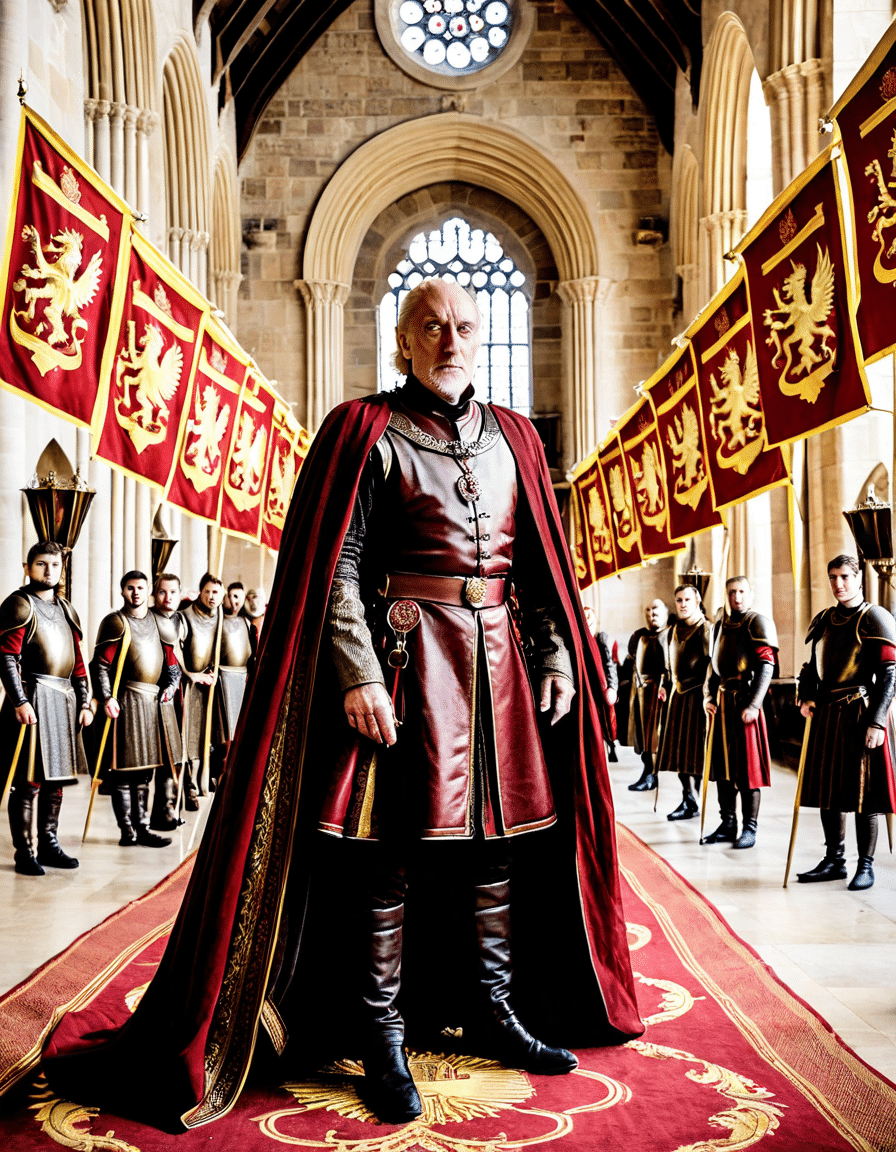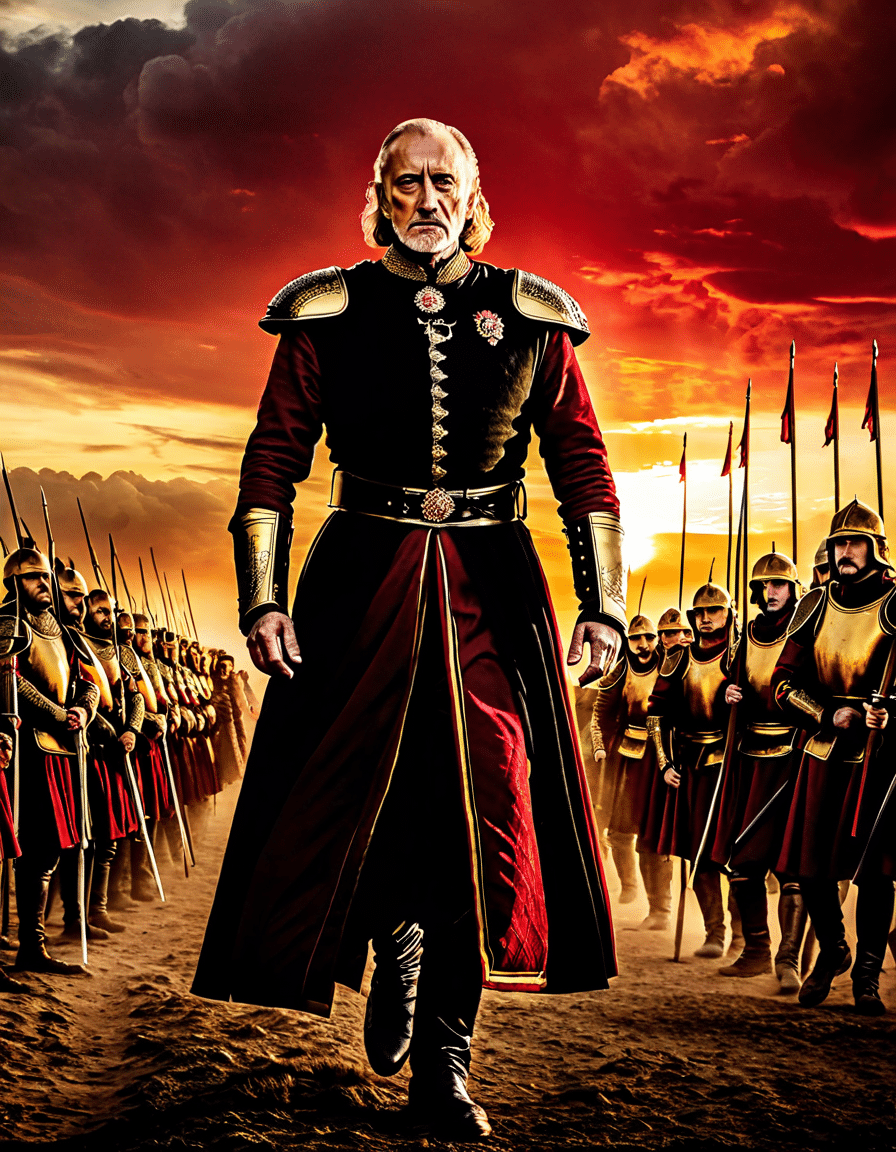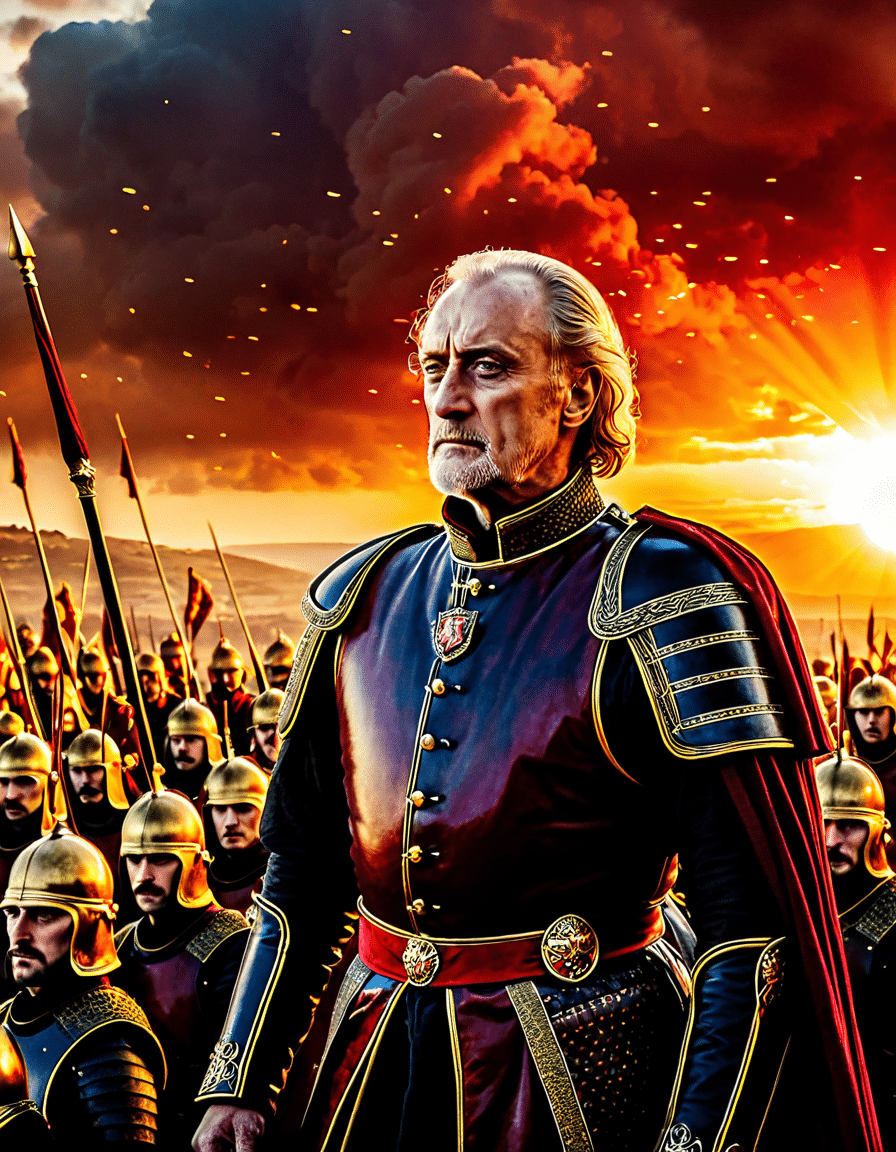
Tywin Lannister The Formidable Power Behind Westeros
Tywin Lannister stands tall as one of the most formidable figures in George R.R. Martin’s epic saga “A Song of Ice and Fire” and its acclaimed HBO adaptation “Game of Thrones.” Known for his ruthless strategies and unyielding ambition, Tywin designed the very political landscape of Westeros. To comprehend the depth of his character and influence, one must delve into the significant ways Tywin Lannister’s power shaped both his family and the Seven Kingdoms. Through calculated decisions and masterful manipulation, he became a central player whose actions resonate deeply within the series—and beyond.
5 Key Strategies That Defined Tywin Lannister’s Power

1. Master of Political Manipulation
Tywin Lannister was a maestro when it came to political manipulation. He expertly maneuvered through the murky waters of Westerosi politics, making strategic choices that would solidify his family’s power. A prime example? Marrying off his daughter Cersei to King Robert Baratheon. This move wasn’t just about family; it was a calculated effort to unite and dominate influential houses, securing a stronghold over the throne and the realm. It’s a strategy that rivals modern political machinations, where aligning with powerful figures remains crucial for control.
2. Creating a Legacy through Jaime Lannister
The relationship between Tywin and his son Jaime Lannister runs deeper than mere familial ties; it’s a complex portrayal of expectation and legacy. Tywin believed Jaime should personify the strength and honor of House Lannister. It’s fascinating to note that instead of allowing Jaime to inherit the family title, Tywin sent him to the Kingsguard, thereby binding him to a life of honor but also conflict. This decision shaped Jaime’s character arc and created ripples throughout the series, making their relationship a critical aspect of the narrative.
3. The Art of Fear as a Tool for Control
Fear might just be Tywin Lannister’s cornerstone of power. His cold demeanor and violent reputation made him a ruler feared by many. Take, for example, the shocking murder of Elia Martell and her children; it served as a grim warning to House Martell and others who might challenge his authority. His chilling quote, “a lion doesn’t concern himself with the opinion of sheep,” illustrates the icy philosophy that sometimes, maintaining control demands ruthless actions. This lesson echoes in today’s world, showcasing that fear, like respect, can hold significant weight in leadership.
4. Strategic Military Insight
Tywin’s talents extended far beyond politics; he was also a brilliant military strategist. The orchestration of the Red Wedding stands as one of his most notorious achievements, effectively obliterating several of his enemies in one fell swoop. This surprising and brutal strike during a celebratory event shows just how far Tywin would go to secure power, revealing his skills in anticipating his opponent’s moves and capitalizing on their vulnerabilities. It’s a lesson in military strategy that we see reflected in various real-world conflicts and political maneuvers.
5. Mastering the Economics of Power
Tywin Lannister understood that wealth is a formidable weapon in the game of power. He mastered the economics of his house, utilizing the gold mines of Casterly Rock to uphold House Lannister’s status as the richest family in Westeros. By controlling significant financial resources, Tywin ensured that he could fund not only his family’s ambitions but also the wars that could reshape the political landscape. Economic power remains a critical element in understanding influence, whether in politics or modern business strategies.

Legacy and Rubble: What Tywin Represents Today
Looking back, Tywin Lannister can be interpreted as a symbol of power dynamics in our contemporary world. As we move further into 2026, his character holds a mirror to how power operates among corporate giants and political figures. The strategic calculations, ruthless choices, and familial conflicts he embodied remain relevant in today’s leadership discussions.
Tywin Lannister’s influence was more than just a quest for familial duty or power; it influenced the very fabric of Westeros. His legacy serves as a cautionary tale about ambition and manipulation while also offering insights into the complex web of personal relationships that can steer political landscapes. Whether through his intricate relationship with Jaime Lannister or the manipulation of fear and finances, Tywin’s life stands as a compelling study, revealing the lessons of ambition and strategy that can still resonate with today’s audiences.
As we reflect on his character, it’s clear that the story of Tywin Lannister is not just a string of events made for a captivating series, but a deep exploration of how the thirst for power can shape destinies—both individual and collective. The formidable power behind Westeros continues to spark discussions about ambition, morality, and the cost of securing one’s legacy.
In our modern storytelling, there’s much to learn from Tywin’s Machiavellian methods; whether you’re an aspiring filmmaker or just a passionate viewer, his story is worth exploring. The decisions of figures like Tywin Lannister make us question what it truly means to hold power, leaving us pondering the fine line between leadership and tyranny.
Tywin Lannister: The Formidable Power Behind Westeros
The Man Behind the “Gold”
Tywin Lannister, played magnificently by Charles Dance, is one of the most formidable characters in Game of Thrones. He’s not just a powerhouse because of his wealth, which, let’s admit, is enough to make even the most notable fictional Characters look twice. Tywin’s ability to strategize and consolidate power makes him a force to be reckoned with in Westeros. Interestingly, Jason Schwartzman was once considered for the role, proving that casting can sometimes take unexpected turns—wouldn’t that have brought a different flavor to the character?
Adding a bit of trivia here, Tywin’s insistence on loyalty and order mirrors real-life leadership styles. For instance, his approach could be analyzed against contemporary Reviews For mortgage Lenders, where solid foundations lead to sustainable outcomes, just like Tywin’s meticulous planning leads to his family’s dominance over the Seven Kingdoms. And if you’re thinking about contrasting leadership styles, don’t forget how his harsh demeanor could be considered as tough love—something we also see in the cast of Julie and the Phantoms, where characters face their own challenges bravely.
The Legacy of a Lion
Tywin Lannister’s legacy is steeped in both fear and respect. His notorious tactics remind us that staying ahead means sometimes playing dirty. There’s an intriguing parallel to be drawn between Tywin’s zero-tolerance policy for betrayal and the harsh realities of life. Just like searching for a dryer For sale in your local listings can be tedious, navigating the intricate web of loyalty in King’s Landing is an uphill battle. You’ve gotta keep the connections tight and the enemies closer.
To top it off, Tywin’s complex persona can inspire interesting discussions around morality in leadership. His brutal decisions invite scrutiny about whether the end justifies the means. Kind of like those flashy men Earrings that some might wear—are they a symbol of personal expression, or just a bold fashion statement? Tywin embodies the duality of being both a ruler and a villain, reminding us that power comes with its own set of dilemmas.
A Cultural Phenomenon
Tywin’s character also has a lasting impact on pop culture discussions, often cited in various analyses and fan theories alike. This fictional icon isn’t just a character; he represents the type of patriarchal authority that some people either aspire to or fiercely oppose. Fascination with figures like Tywin often leads to deeper explorations of themes, reminiscent of content seen on platforms like Sinfuldeeds, where morality is questioned and debated extensively.
In essence, Tywin Lannister stands as a significant pillar in Game of Thrones, holding together power dynamics and showing just how far one can go to secure their legacy. It’s this blend of Machiavellian tactics and undeniable influence that keeps audiences coming back, much like the ever-evolving discussions around the Nwo, proving that captivating characters never really fade away.













